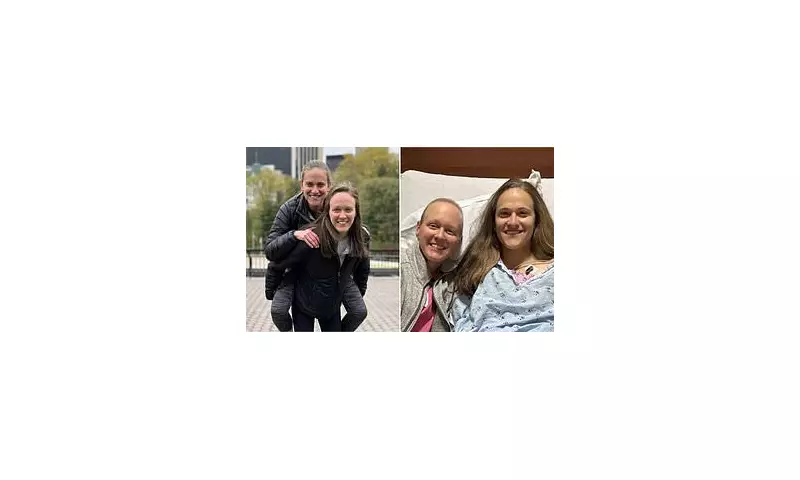
Two sisters from North Carolina, both aged 27, faced a devastating parallel battle after being diagnosed with breast cancer within months of each other, a situation that led to urgent double mastectomies.
Kate and Elizabeth Singletary, who are part of a set of triplets, discovered they both carry the CHEK2 gene mutation, a genetic alteration linked to a significantly elevated risk of developing breast cancer. This discovery came shortly before each received her own shocking diagnosis.
A Shocking Discovery and Rapid Diagnosis
Kate Singletary, a paramedic and medical student from Winston-Salem, first detected an abnormality in March 2024. "I just noticed something felt not normal in my breast," she recalled, describing the mass as a "pretty big lump." The moment doctors delivered the likely diagnosis was surreal. "When they initially told me that they thought it was cancer, I kind of went numb," Kate wrote. "I kept nodding my head as the radiologist was talking, and I kind of blacked out what he said."
A biopsy confirmed invasive ductal carcinoma. With doctors suspecting the cancer had spread to her lymph nodes and possibly bone, they treated it as Stage III and moved with remarkable speed, placing Kate directly into chemotherapy before surgery. "Everything was happening so fast," she noted. The diagnosis was particularly jarring for Kate, who had run 4,000 miles across the United States in 2019 to raise money for young adults with cancer.
A Family Genetic Link Revealed
Genetic testing revealed the root of the problem: the CHEK2 gene mutation. Upon learning of Kate's result, her sister Elizabeth decided to be tested as well. "Mine came back positive for that genetic mutation as well," Elizabeth confirmed. This knowledge prompted further scans, which led to her own diagnosis of Stage I breast cancer roughly six months after Kate's.
Kate's reaction to her sister's news was one of profound distress. "I started crying. I didn't want her to have to go through all of this too," she shared. However, Elizabeth faced her diagnosis with courage, noting that watching Kate navigate her treatment with a later-stage cancer had lessened her own fear.
Aggressive Treatment and Shared Recovery
Both sisters embarked on aggressive treatment plans. In a striking turn of events, they each underwent a double mastectomy just five days apart. This proximity meant they recovered "under the same roof," providing invaluable mutual support by helping each other manage surgical drains and the challenges of post-operative care.
Kate endured 20 weeks of chemotherapy that left her physically drained and emotionally vulnerable. "I lost weight from anxiety, and I was constantly fatigued," she wrote. Losing her hair 12 days after starting treatment made the reality of her situation stark. Despite the gruelling process, she could feel her tumour shrinking, describing it as "melting away." She finished chemo on September 11, but required further surgery and six weeks of radiation after tests showed cancer remained in her lymph nodes.
Both sisters are now cancer-free, though Kate continues with follow-up procedures to ensure no residual disease remains. Their family's ordeal with cancer is profound; their father previously battled multiple myeloma, meaning the family has confronted three cancer diagnoses within six years.
A Urgent Warning from Doctors and a Survivor
The Singletarys' case has prompted medical professionals to issue strong warnings. Doctors say their experience highlights how aggressive breast cancer can be in younger patients and demonstrates the swift impact on families with inherited mutations.
Dr. Marissa Howard-McNatt, a breast surgeon at Atrium Health Wake Forest Baptist, emphasised the immediate need for early screening. "Those individuals should undergo high-risk screening, meaning they should start mammograms at an earlier age, typically at least 10 years prior to the diagnosis of their first-degree relative," she advised. This high-risk monitoring typically involves alternating mammograms with MRIs.
Kate is now using her experience to urge younger women to take screening seriously. "I want women to know that cancer doesn't discriminate based on age," she wrote. She advocates for monthly self-breast exams and early genetic testing, especially where there is a family history. Her message is clear: "If something feels different, you can get it checked out." Medical experts echo this, noting they are increasingly finding more aggressive cancers in younger patients, with families often learning of their inherited risk only after the disease has already taken hold.






